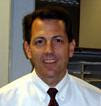 “I tend to forget drinking water even when it’s hot, and you expect me to remember to do that when it’s cold?”
“I tend to forget drinking water even when it’s hot, and you expect me to remember to do that when it’s cold?”Odds are that something similar came across your mind when you read the headline. No wonder – we’re very good at forgetting that we need to drink water. Even if we’re dying of thirst, there’s a good chance we won’t even notice it!
Everyone tells us when it’s hot, we should drink plenty of water. And while they’re right, that same rule applies to the times when it’s cold too. In winter, our water balance is easy to disrupt, if we don’t know what to do.
Our bodies need water for many purposes. Cooling down is only one of them. You need water to remove toxic waste from your body and to transport minerals in and out of the cells… just to name a few. You need to drink water every day no matter if you’re hot or not. Your body will need this water to keep itself running.
What happens if you don’t drink any water? The body takes that as a sign that you are living in an environment where there is little water. So it cuts down on its use. This makes you perform worse than normal, but at least you are alive. If you start drinking plenty of water, you will teach your body that there really is enough for it to keep going. After a few days, you will start getting thirsty more and more often. Your body will be working at full speed. So basically, we get enough water to survive from the food we eat. But if we are to feel energetic and good about ourselves, we need to drink water no matter if it’s summer of winter.
Posted by Troy Weaver, VP of Health & Wellness Operations, Y of Central Maryland



